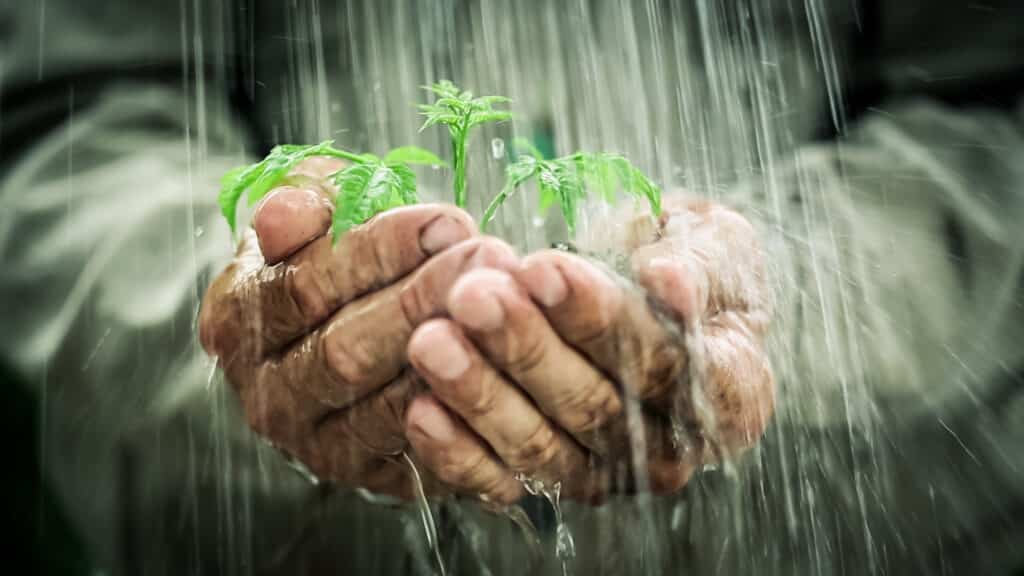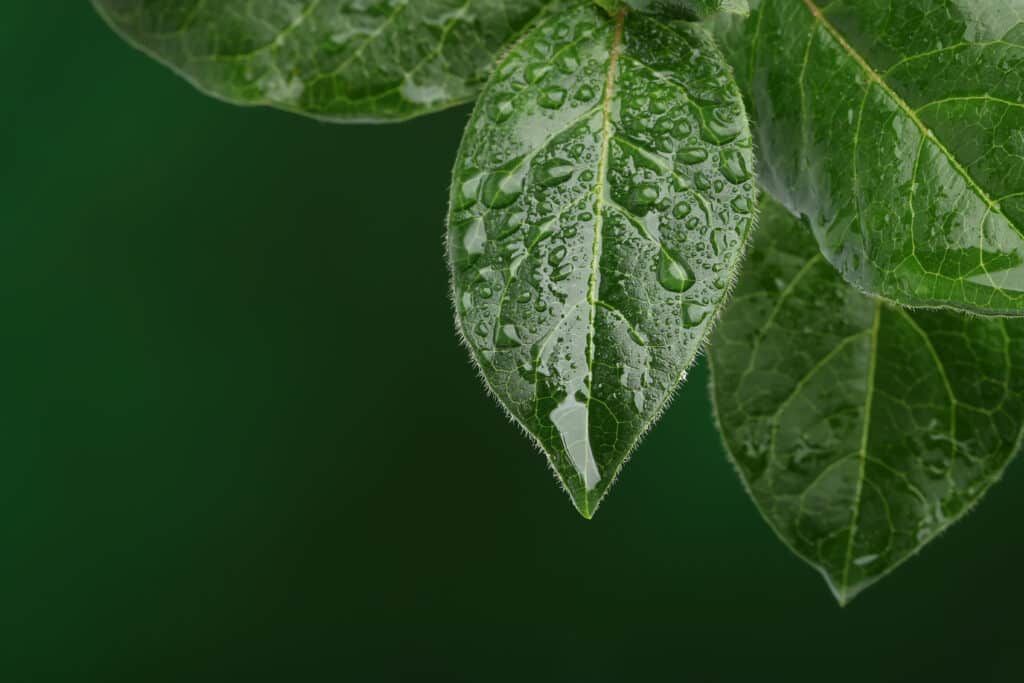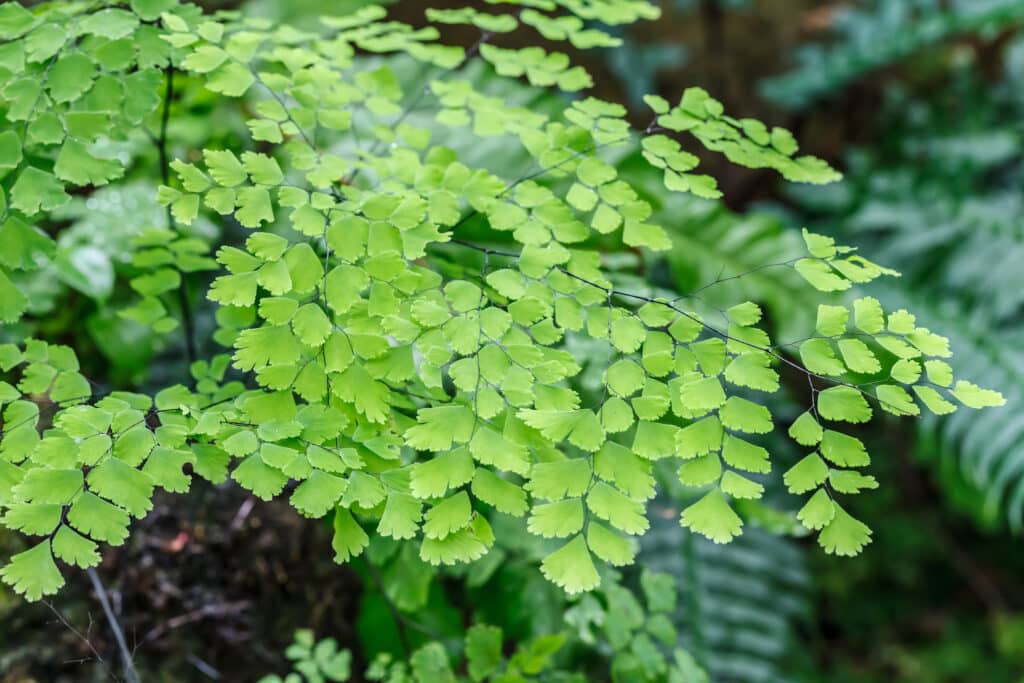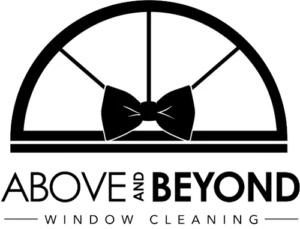A good pressure wash is the most efficient way to free a home of dirt, grime, and muck. However, if you are not careful, you can get a clean exterior at the expense of your plants. The powerful pressure and cocktail of chemicals, while a good fit for giving a home a sparkling finish, can kill shrubbery and decorative flowers. You can protect your plants during a power wash by taking a few precautions.

The Right Chemicals
Having the right mixture of cleaning solution when you pressure wash is a critical component. Bleach is a common go-to when pressure washing because it is an effective tool against mold, mildew, and moss. However, bleach will also kill your daffodils and daisies if not handled properly.
If you want to protect your plants, you’ll have better success cleaning and keeping your plants alive by finding an environmentally friendly detergent diluted to 10:1 (water to detergent). This is gentler on plants but still requires caution around plants. If you do need to use bleach, a surfactant included in the cleaning solution can protect your plants by minimizing runoff and reducing the amount of bleach needed.
Another good idea is to apply a neutralizing agent. The right one, applied before or after the pressure wash, can help to balance out any chemicals used in the process. The manufacturer’s instructions should be followed to the letter.

Cover Up
Covering up your plants is an important part of shielding them during a pressure wash. However, if you cover them too long, you’ll suffocate your plants, cutting off their carbon dioxide supply. Covering plants incorrectly can also cause all the chemicals used in a power wash to runoff right at the base of the plants, where they will absorb the contaminated water.
If you choose to protect your plants during a pressure wash by covering them, you’ll need to use wisdom. Only cover the sections immediately nearby the pressurized spray, then uncover them quickly and move to the next spot, taking the tarp with you. While this takes time, it will protect your plants from the greenhouse effect and suffocation.
A Good Rinse
Interestingly enough, rinsing your plants before a pressure wash takes places can also help protect them during the process. If your plants are saturated and wet when they come into contact with cleaning solution, the chemicals will be diluted and more likely to runoff harmlessly. You can use a simple garden hose to pre-soak your plants.
The longer detergents and other chemicals remain on plants, the more likely they are to cause damage in the form of discolored brown spots or dehydration. The salts left behind after a pressure wash can inhibit plants’ ability to absorb water, leading to their demise. Make sure you completely rinse your plants after a pressure wash to give them the best chance at life.
We should note that surfactants and other pressure wash cleaning solutions generally become inert within a day of drying. In other words, if your plants can’t get dry after you clean your home (perhaps because of a rain), the chemicals will remain active longer. Rinsing right after a wash protects your plants by removing the cleaning agents from leaves and roots so drying time is immaterial.

A Method to the Madness
For all the aforementioned strategies, you still need some finesse to protect your plants during a house cleaning. One important step is to redirect the runoff. The water, once it sprays your property clean, has to go somewhere, and for the sake of your plants you don’t want that to be into their root systems. You can redirect the stream from your gutters and downspouts to more auspicious places or, even better, bag the ends of them. From there, you can completely remove that chemically-rich water to places it can’t affect your plants. After all, you don’t want to kill your grass either.
During the pressure wash itself, you can set yourself up for success by applying the soap at the bottom of the walls and working your way upward. This method helps create a barrier to chemical run-off.
Protect Your Plants with Professional Pressure Washing
Hiring someone you trust is the best way to protect your plants during a pressure wash. Experienced professionals have all the necessary tools to keep your plants safe, and they know the right methods for doing so. With a pressure washing team, we can cut the time of your pressure washing in half as some of our team members handle the spraying while others are on tarp duty. If you want to keep your plants intact before and after cleaning your home, let the professionals manage the job.

 781-346-9911
781-346-9911

Leave a Reply